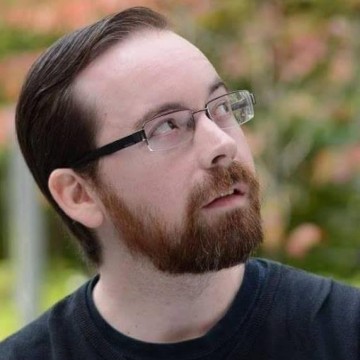Creeptober Night 14: The Cabin in the Woods (2011)
Meta-horror, deconstructed.
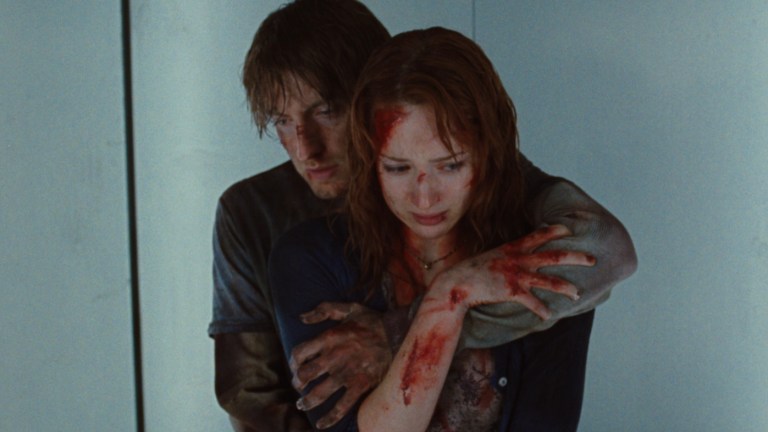
Since Saturday, I’ve been picking movies for this Creeptober marathon that roughly coincide with a thread of cinematic influence. It began with Scream on day 11, and this mini-marathon within the larger marathon comes to a conclusion tonight. Why? Because to me, tonight’s Creeptober movie feels like the logical endpoint for an exploration of the meta-horror commentary popularized by Scream. Tonight we watch The Cabin in the Woods.
Reacting to The Cabin in the Woods
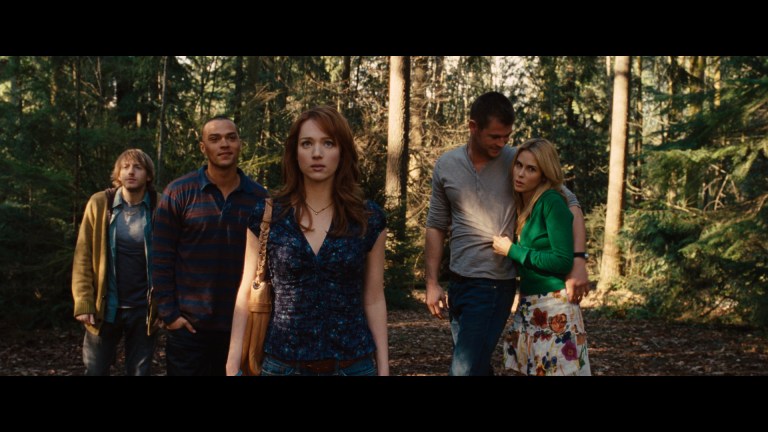
I promise I’ll stop talking about Scream during Creeptober, but give me just one more night. It’s important, because as I was re-watching The Cabin in the Woods to do this write-up, I couldn’t help thinking about how its approach to commenting on the horror genre works like an evolution of some of Scream‘s ideas.
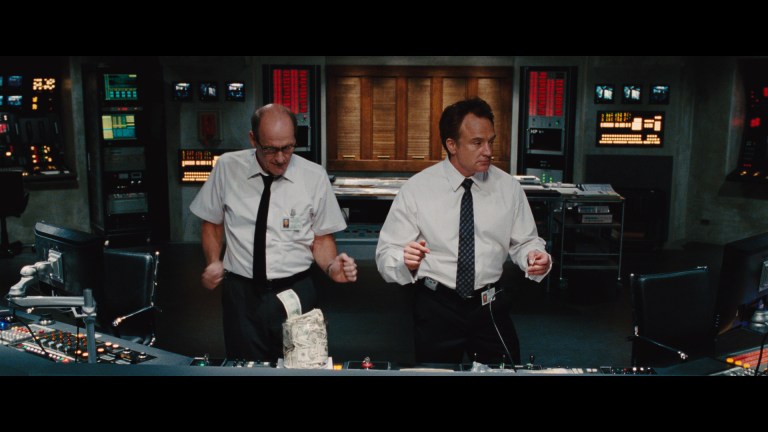
What I mean is that everyone, to some degree, is aware of horror movies in the world of Scream. The characters’ reactions while in a deadly situation might be influenced by that knowledge. Sometimes it is, and sometimes it isn’t. The audience also knows the tropes of the genre, and that adds an additional meta-layer of fun because we know what the characters should do, and we know that the characters know what they should do, but they don’t always do it. It’s clever writing that makes even non-subversive moments seem subversive due to our own expectations as horror fans.

The Cabin in the Woods takes this idea of the characters and the audience both knowing horror tropes to an absurd level. Everyone knows about horror movies in this world as well, but the organization is literally forcing people to adhere to horror clichés. The movie explains that horror tropes actually come from the “old world,” but for the audience, the organization is essentially making a horror movie. Once we realize what is happening, The Cabin in the Woods echoes a similar “non-subversive yet still subversive” feeling, just in a much more obvious way. And I don’t mean “obvious” in a bad way. I think the writing in the movie is extremely clever.
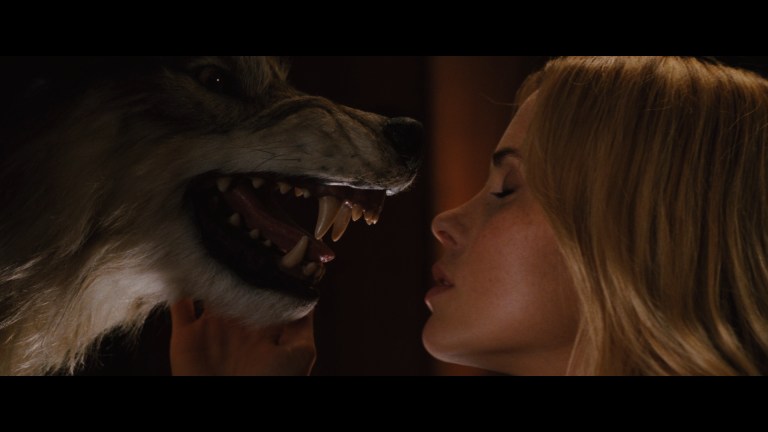
The Cabin in the Woods is a bit like a deconstruction of Scream‘s deconstruction of the horror genre. Where Scream makes its characters feel real because of their awareness, The Cabin in the Woods takes characters who might feel real and turns them into archetypes. We don’t really get to spend much time with Dana and her friends before they’re overtaken by their roles in the organization’s plot, but we do get a glimpse of their true personalities early in the film.
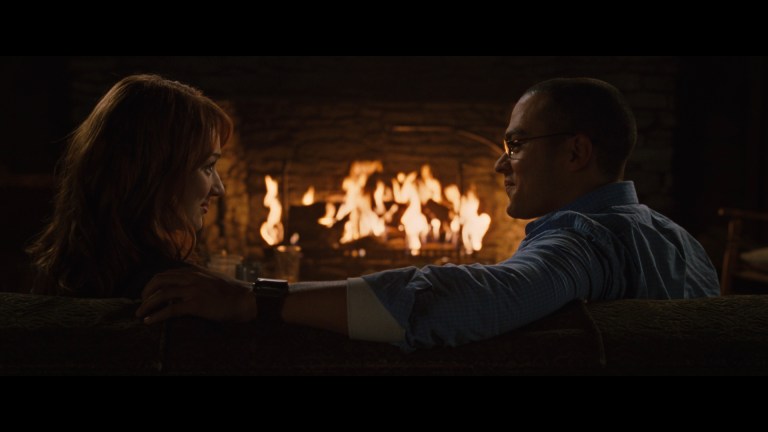
We see hints that the friends don’t actually fit their assigned character types in the scene where they gather at Dana’s apartment. Curt is the smartest before he becomes a dumb jock. Holden is sporty before he becomes a genius. Jules is not dumb and doesn’t sleep around. And Dana is not a virgin. But as the manipulation increases from the organization, they each fall further and further into what someone might expect from a stereotypical horror movie.
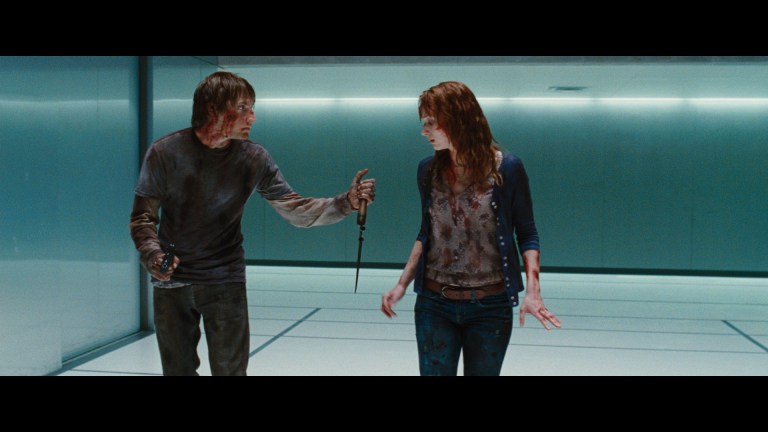
Marty is just Marty because he’s unaffected by the organization’s tricks (though he’s not unaffected by the usual results of lots and lots of smoking). But it is important to note that Marty doesn’t fit the traditional “stoner” archetype. He’s quite smart and very perceptive.
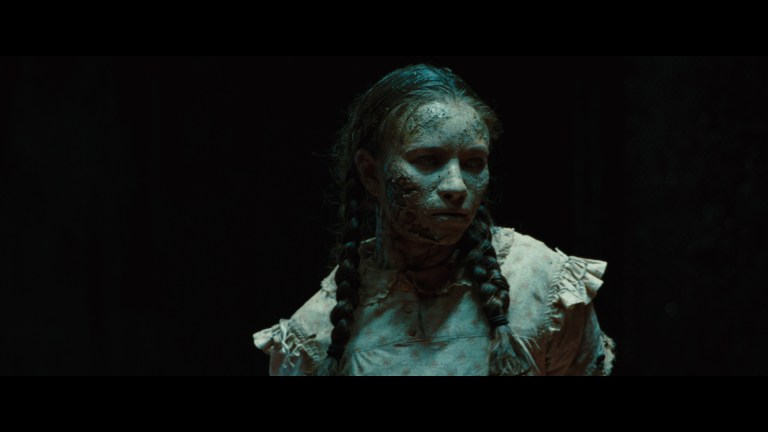
To take the idea of The Cabin in the Woods being a deconstruction of meta-horror even further, the movie literally separates the meta from the horror. The organization takes self-referential horror to heights untouched by Scream and its imitators, and the five friends in the cabin are in a situation that meta-horror usually mocks. We get both a loving parody and a straightforward horror film, side by side, in the same movie. And it works brilliantly.
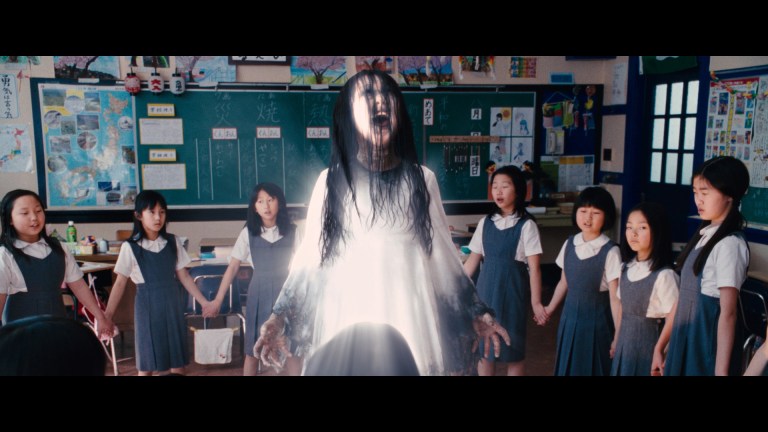
I’m not saying that The Cabin in the Woods is better than Scream, but it’s a completely different experience. The way The Cabin in the Woods constructs its story inevitably makes it more comedy-forward. It’s a very funny movie, and that’s what it needs to be to tell its story effectively. As a horror-comedy, The Cabin in the Woods is pretty high up there in my list of favorites.
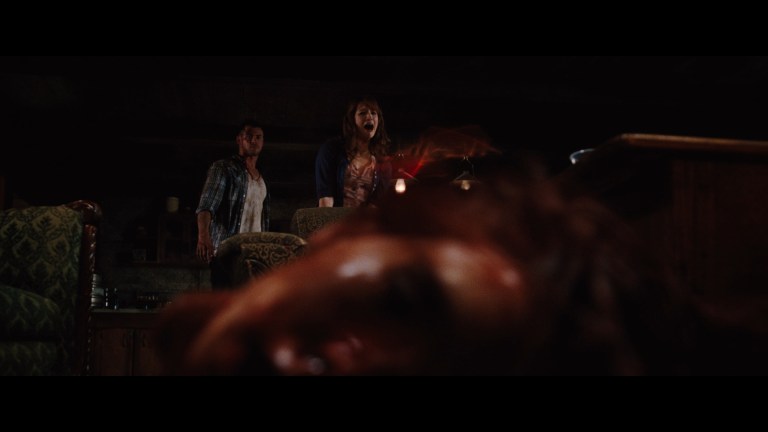
I hope this all makes sense. It’s kind of like an early draft on deeper thoughts that I have about the movie. I might refine my theory of the “deconstruction of a deconstruction” later. I also have some thoughts about how many movies, including The Cabin in the Woods, focus on stereotypes that might or might not be as prevalent in horror movies as popular opinion tends to believe. But I’ve gone on long enough already, so that’s a discussion for another time.
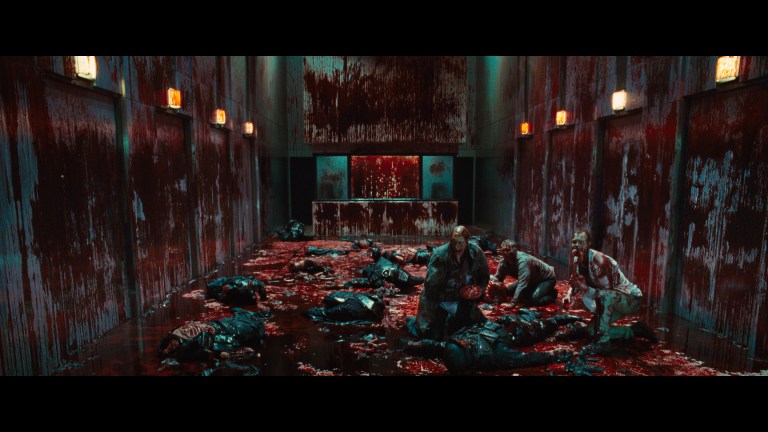
Also, I’m sorry to say that there’s not enough interesting trivia for a full section in this write-up. I listened to the Blu-ray commentary track from director and co-writer Drew Goddard and producer and co-writer Joss Whedon (yeah, I know), but they didn’t offer much more than just saying how much they like the movie. There were a few facts they dropped here and there, but none of it is particularly interesting.
